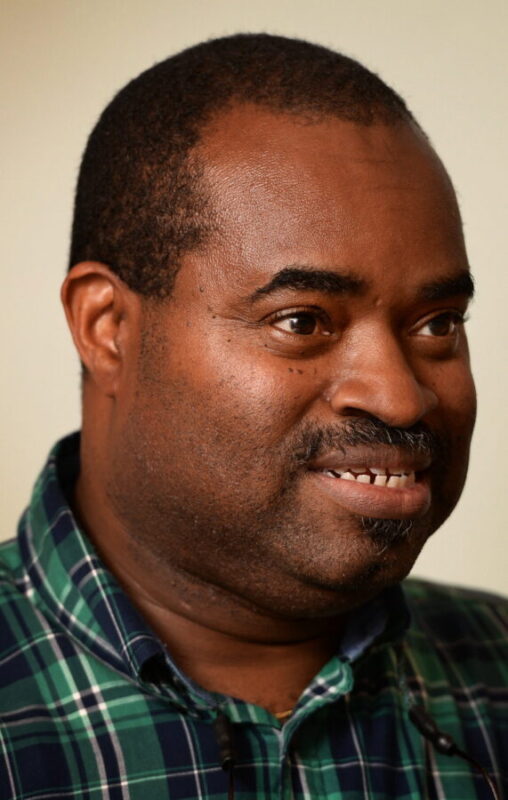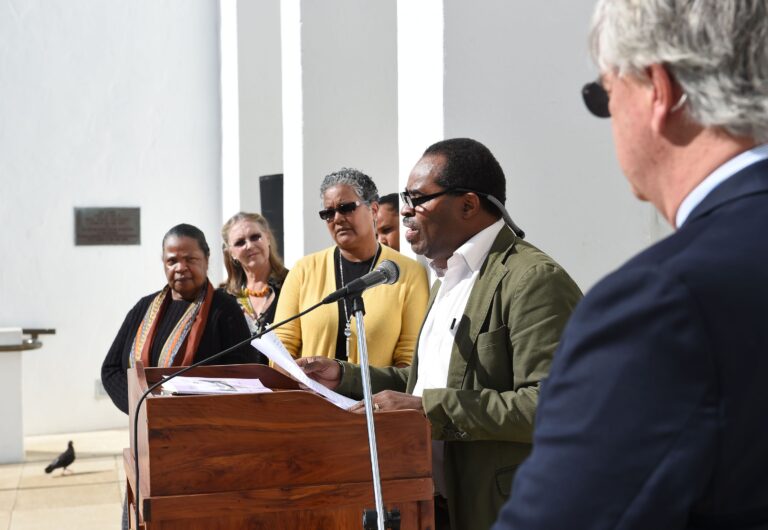by Donna Janda
As we delve into the complexities of racial advocacy and history in Bermuda, the onset of Black History Month brings a pertinent issue to the forefront. Stacey-Lee Williams, Executive Director of Citizens Uprooting Racism in Bermuda (CURB) offers valuable insights into the traditional approach to this observance. Her perspectives shed light on the broader implications of how Black history is integrated into our collective consciousness, challenging the status quo and urging a more inclusive approach.

While acknowledging the increased attention towards Black history and CURB’s role during February, Ms Williams points out an underlying issue: the ‘othering’ of Black history. She states that this seasonal focus inadvertently isolates Black history, treating it as separate from the broader historical narrative.
Conversely, Ms Williams advocates for a more continuous and integrated approach, where Black history is recognized as an essential and inseparable part of Bermuda’s history throughout the entire year.
The Genesis and Evolution of CURB
In the effort to weave Black history into Bermuda’s broader narrative, organizations like CURB have played a crucial role. CURB’s evolution from a discussion group to a prominent voice in racial advocacy occurred during a time in Bermuda’s history that was characterized by an acute awareness of racial disparities. Initially established from race-focused discussions, CURB was primarily led by white individuals dedicated to fighting racism. This initial stage of development saw significant progress in 1995, when CURB received a government grant to enhance their initiatives, marking a pivotal moment in their journey towards racial advocacy.

Former President Cordell Riley recalls that the early years focused on raising awareness through seminars and workshops in collaboration with organizations like the Commission on Unity and Racial Equality (CURE). However, the dissolution of CURE in 2010, and its absorption into the Human Rights Commission, was seen by CURB as a dilution of focused efforts on racism. In response, CURB launched its racial justice platform, advocating for systemic changes that transcended mere acknowledgment, and sought tangible actions.
The Shift in Leadership Dynamics
Over time, CURB experienced a significant shift in its leadership. The organization, initially led by white activists, gradually saw an increase in Black leadership. This shift was reflective of a broader understanding, within CURB, of the different experiences between white and Black activists in the fight against racism. Mr Riley explains that while white activists could afford to step back from racial activism, Black individuals lived with the constant repercussions of racism, making their involvement a relentless – and personal – battle.
By 2012, this transformation within CURB was clearly evident, with the organization transitioning from about 60% white-led to predominantly Black-led. This change was more than a shift in demographics; it represented a deeper understanding and commitment to addressing racism from those most affected by it. Mr Riley notes that steadfast allies among the white community continue to support CURB, however, participation tends to fluctuate.
Impact of Global Events and Funding Challenges
CURB received a significant grant from Atlantic Philanthropies, recounted Mr Riley. This support enabled CURB to focus on leadership development and professional training, enhancing their capacity to effect change. However, funding in general had been a challenge until the global response to George Floyd’s death, and the subsequent Black Lives Matter movement. This period saw an unprecedented increase in awareness and financial support for CURB’s initiatives. Corporations, previously less engaged with CURB’s work, began to contribute financially, allowing CURB to expand its reach and offerings – including workshops and community engagement initiatives.
Ms Williams stated that sustaining this funding momentum has been challenging. As initial public interest waned, so did the peak in funding, prompting CURB to concentrate on maintaining donor relationships and adapt its focus to more internally-driven initiatives, such as restorative practices in schools and workplaces, to continue its impactful work.
Reflections of Hope
CURB’s work in recent times, while impactful, has often been conducted ‘under the radar’ – focusing on restorative practices and behind-the-scenes initiatives. Mr Riley stated that this approach, effective in addressing issues directly, led to a public perception that CURB might be less active than in previous years, when they are actually busier than ever.
Reflecting on CURB’s journey, Mr Riley shares a sense of cautious optimism. The organization has witnessed gradual, but significant, shifts in attitudes toward racial issues in Bermuda. The increased understanding and willingness to engage in difficult conversations across racial lines gives hope for a future where racial equality is not just an ideal, but a lived reality.
Despite the reluctance to engage publicly in discussions, Mr Riley reports that many in the white community privately express support for CURB’s work. This private support, while encouraging, also highlights the ongoing challenges of public advocacy against racism in Bermuda. The persistence of negative and racist comments in public forums serves as a reminder of the work that remains. Mr Riley calls for all to amplify voices that advocate for understanding, equality, and respect, which is crucial in counteracting the negative impact of these comments.
Current Focus and Future Aspirations
Looking ahead, CURB sets its sights on an ambitious – yet paradoxical – goal: making itself unnecessary. Ms Williams, Mr Riley, and the rest of the organization are working towards a future where CURB’s efforts are so successful that Bermudians can independently handle racial issues. They envision a Bermuda where racial equality is so deeply embedded in the fabric of society that every individual is empowered to actively combat racism. Their goal is to educate and inspire Bermudians across all sectors, fostering a community that can resolve racial matters independently. In this envisioned future, leaders will confidently and publicly stand against racial injustices, embodying the lessons CURB has imparted. Thus, the ultimate triumph for CURB lies in achieving a Bermuda where its existence is no longer necessary – a testament to a truly harmonious and racially aware society.

